About the Editors
Editor-in-Chief
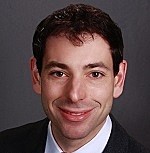 Trever Bivona, MD, PhD
Trever Bivona, MD, PhD
Prof. of Medicine and Cellular and Molecular Pharmacology
University of California, San Francisco
CA, USA
Dr. Bivona is a laboratory-based physician scientist at the University of California, San Francisco. He is a cancer biologist who leads a research program focused on signal transduction and cancer genetics and the molecular basis of tumor initiation, progression, and drug resistance. A major area of interest is the function and therapeutic targeting of oncogenic receptor tyrosine kinases and RAS. The goal of this research program is to understand the regulatory principles underlying cancer cell signaling and tumor evolution to improve cancer therapy and patient survival. He is an elected member of the American Society for Clinical Investigation.
Deputy Editors
 Matthew Gubin, PhD
Matthew Gubin, PhD
The University of Texas MD Anderson Cancer Center
Houston, Texas, USA
Section Editor: Tumor microenvironment and Immunotherapy
The main emphasis of Dr. Gubin's research is to define the antigenic targets of tumor-specific T cells and better understand how T cells recognize and either eliminate cancer or fail to control tumor growth in response to cancer immunotherapy. By combining preclinical genetically engineered mouse models with analysis of human patient samples by high dimensional approaches including single-cell RNA sequencing and mass cytometry by CyTOF, his lab is focused on developing effective combinatorial immunotherapies targeting tumor-specific mutant neoantigens in both primary and metastatic cancer.
 Xiaofeng Jiang, MD
Xiaofeng Jiang, MD
Researcher
Technical University of Dresden
Dresden, Germany
Xiaofeng Jiang completed his residency in surgery at Sun Yat-sen University in Guangzhou, China, where he earned his MD degree. Currently, he serves as a surgeon-scientist at the Else Kroener Fresenius Center for Digital Health, Technical University Dresden, Dresden, Germany. His current research focuses on developing multimodal artificial intelligence models for survival prediction in colorectal cancer, utilizing histopathology, radiology, genetic data, etc.
 Jakob Nikolas Kather, PhD
Jakob Nikolas Kather, PhD
Professor, Technical University of Dresden
Dresden, Germany
Section Editor: Artificial Intelligence and Computation Oncology & Biomarkers & Diagnostics
Professor Jakob Kather holds dual appointments in medicine and computer science at the Technical University (TU) Dresden, Germany, serves as a senior physician in medical oncology at the University Hospital Dresden and holds an additional affiliation with the National Center for Tumor Diseases (NCT) in Heidelberg. His research is focused on applying artificial intelligence in precision oncology. Prof. Kather’s research team at TU Dresden is using deep learning techniques to analyze a broad spectrum of clinical data, including histopathology, radiology images, textual records, and multimodal datasets.
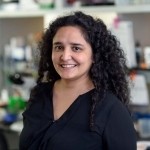 Fresia Pareja, MD, PhD
Fresia Pareja, MD, PhD
Assistant Attending, Department of Pathology and Laboratory Medicine
Memorial Sloan Kettering Cancer Center
NY, USA
Section Editor: Genomics, transcriptomics and proteomics
Dr. Fresia Pareja is a diagnostic breast pathologist and physician-scientist at Memorial Sloan Kettering Cancer Center (MSKCC). Her research focuses on deciphering the molecular underpinning of special histologic subtypes of breast cancer, such as lobular breast cancer, and on the identification of molecular alterations in cancer converging on the same phenotype. She is also passionate about the discovery of novel cancer genes through the study of rare tumors and on the role of endocytosis and pH regulation in tumorigenesis. She is co-director of the Lobular Breast Cancer Program at MSKCC, and a scientific advisor of the Lobular Breast Cancer Alliance. Dr. Pareja has received prestigious accolades, including the 2024 Ramzi S. Cotran Young Investigator Award.

Pradeep Chaluvally Raghavan, PhD
Assoc. Prof. Obstetrics and Gynecology
Medical College of Wisconsin
Milwaukee, USA
Section Editor: Tumor Biology & Translational Cancer Biology
Dr. Chaluvally Raghavan is a faculty in the Department of Obstetrics and Gynecology with an adjunct appointment in the Department of Physiology at the Medical College of Wisconsin (MCW), Milwaukee. His lab is actively researching how RNA Binding Proteins (RBP) contribute to phase separation in cancer cells, stromal cells, and immune cells. The overarching goal of his lab is to characterize the cooperative oncogenesis orchestrated through RBPs for cancer progression. They are developing and validating agents that abolish cooperative oncogenesis by inhibiting the actions of RBPs and their targets. His team is also testing how single-cell genomic technologies can serve as devices for efficient target identification and drug development for cancer therapy.
Associate Editors
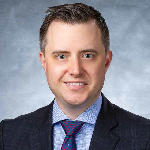 Christopher Alvarez-Breckenridge, MD, PhD
Christopher Alvarez-Breckenridge, MD, PhD
Assistant Professor, Department of Neurosurgery
University of Texas MD Anderson Cancer Center
TX, USA
Christopher A. Alvarez-Breckenridge, M.D., Ph.D., is an assistant professor in the Department of Neurosurgery at MD Anderson Cancer Center. He was a member of the Medical Scientist Training Program (MSTP) at The Ohio State University where he received his combined MD/PhD and his doctoral research focused on oncolytic viral therapy for gliomas. He subsequently completed residency in neurosurgery at Massachusetts General Hospital. During that time his research focused on markers of response to immune checkpoint blockade for central nervous system metastases. He subsequently completed a Neurosurgical Oncology Fellowship at The University of Texas MD Anderson Cancer Center prior to joining the faculty as a member of the MD Anderson Physician Scientist Program. In addition to a clinical practice focusing on cranial and spinal malignancies, he leads a translational research laboratory focusing on immunotherapeutic approaches for brain and spinal metastases along with primary spinal tumors.
 Ramesh Balusu, PhD
Ramesh Balusu, PhD
Assistant Professor, Department of Internal Medicine, Division of Hematologic Malignancies and Cellular Therapeutics
University of Kansas Medical Center
Kansas, USA
Dr. Ramesh Balusu is a faculty member in the Department of Internal Medicine, Division of Hematologic Malignancies and Cellular Therapeutics at the University of Kansas Medical Center in Kansas City, KS. His research is at the forefront of identifying novel targets and advancing precision therapies for leukemia and lymphoma cases with a poor prognosis. His laboratory focuses on investigating the intricate landscape of Nucleophosmin 1 (NPM1) and NPM1 fusion genes, as well as other fusion oncogenes, to gain profound insights into these complex malignancies. Moreover, his research extends to pioneering FLT3 and HSP90-targeted therapies for hematologic malignancies. Dr. Balusu's impactful collaboration with clinicians empowers the translation of benchside discoveries into bedside interventions for the benefit of patients. Dr. Balusu is the Scientific Director for the Midwest Stem Cell Therapy Center at KUMC.
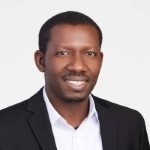 Igor Bado, PhD
Igor Bado, PhD
Assistant Professor of Oncological Sciences
Icahn School of Medicine at Mount Sinai
New York
Dr. Igor Bado is an Assistant Professor of Oncological Sciences at the Icahn School of Medicine at Mount Sinai. He studies epigenetic mechanisms involved in breast cancer metastasis and therapeutic resistance.
 Lydia Cheung, PhD
Lydia Cheung, PhD
University of Hong Kong
Hong Kong, China
Dr. Cheung’s research focuses on advancing precision medicine by bridging functional cancer genomics and therapeutics. Her studies define how patient-derived genomic alterations rewire signaling pathways and drug responses, uncovering mechanistic insights into cancer development and therapy resistance. A key area of her work is the discovery of neomorphic mutations that activate unexpected signaling cascades, revealing functions distinct from their wild-type counterparts.
 Valerie Suk Peng Chew, PhD
Valerie Suk Peng Chew, PhD
Associate Professor, Duke-NUS Medical School
Translational Immunology Institute (TII), SingHealth-Duke-NUS
Singapore
Dr. Valerie Chew graduated with PhD in immunology from Agency of Science, Technology and Research (A*STAR), Singapore. She now serves as a Principal Investigator in Translational Immunology Institute (TII), SingHealth and holds a position of Associate Professor in Duke-NUS Medical School, Singapore. Her research delves into deciphering the intricate immune landscape and crosstalk within the tumor microenvironment of hepatocellular carcinoma (HCC), with a keen focus on uncovering biomarkers and therapeutic avenues.
 Bryan Choi, PhD
Bryan Choi, PhD
Massachusetts General Hospital and Harvard Medical School
Boston, MA, USA
Dr. Choi is a Neurosurgeon and laboratory-based investigator at Massachusetts General Hospital. He specializes in the surgical care of patients with benign and malignant tumors of the central nervous system. He also leads a research laboratory with the goal of developing the next generation of immune-based cell therapies and clinical trials in neuro-oncology.
 Marc Diederich, PhD
Marc Diederich, PhD
Seoul National University
South Korea
Marc Diederich is a Professor at the College of Pharmacy at Seoul National University. His research focuses on the molecular mechanisms behind cancer cell death, therapy resistance, and immune evasion, particularly in hematologic malignancies. He has made notable contributions to developing innovative anticancer strategies, including HDAC inhibitors, BH3 mimetics, and natural compounds, often in combination with immunotherapeutic approaches. He is committed to advancing precision oncology by identifying patient-specific vulnerabilities and rationally designing targeted therapies. His translational work connects experimental pharmacology with clinical relevance to enhance therapeutic outcomes in resistant and relapsing cancers.
 Arnaud Da Cruz Paula, PhD
Arnaud Da Cruz Paula, PhD
Assistant Researcher
i3S Institute for Research and Innovation in Health
Porto, Portugal
Dr. Arnaud Da Cruz Paula earned his PhD in Pathology and Molecular Genetics from the University of Porto. He later joined the Department of Surgery at Memorial Sloan-Kettering Cancer Center (MSKCC) as a Post-Doctoral Fellow, where he specialized in high-throughput genomics to uncover drivers of rare gynecologic cancers. During this time, he also developed expertise in bioinformatics, particularly in understanding the clinical and biological implications of intra-tumor heterogeneity in cancer. He became a recognized expert in single-cell DNA and RNA sequencing (scDNA/RNASeq), and notably developed a scDNASeq method optimized for use with banked frozen tumor tissues. He has since returned to Portugal, where he serves as an Assistant Researcher at the i3S Institute for Research and Innovation in Health. There, he leads tumor evolution analysis efforts focused on aggressive endocrine cancers.
 Ramona Erber, MD, PhD
Ramona Erber, MD, PhD
Institute of Pathology, University Regensburg
Regensburg, Germany
Professor Ramona Erber is a state-certified pathologist, senior physician in surgical pathology and molecular pathology and holds a professorship in pathology at the University of Regensburg. Her research focuses on multimodal tissue-based prognostic and predictive biomarkers, particularly in breast cancer and gynecological tumors. In addition, she is the central study pathologist for the evaluation of biomarkers in clinical studies and heads the institute's internal pathology study unit.
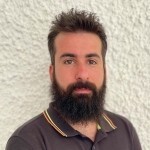 Lorenzo Ferrando, PhD
Lorenzo Ferrando, PhD
Assistant Professor
Department of Internal Medicine, University of Genoa
Genoa, Italy
Prof. Lorenzo Ferrando is a researcher in Applied Medical Technical Sciences at the University of Genoa, specializing in liquid biopsy and multi-omics approaches. His research focuses on advancing early cancer detection, identifying circulating biomarkers, and characterizing rare breast cancer types. He earned his PhD in Translational Medicine at the University of Genoa, further developed his computational oncology expertise at Memorial Sloan Kettering Cancer Center (MSKCC), and serves on the Core Data Analysis Committee of the AURORA Programme, led by the Breast International Group (BIG), where he contributes to the analysis and interpretation of genomic data from metastatic breast cancer patients.
 Chuan Gao, PhD
Chuan Gao, PhD
Assistant Attending
Memorial Sloan Kettering Cancer Center
NY, USA
Dr. Chuan Gao is a faculty member in the Department of Pathology and Laboratory Medicine at Memorial Sloan Kettering Cancer Center in New York. His clinical work focuses on the identification and interpretation of molecular genetic alterations in cancer predisposition genes, with the goal of advancing personalized care for cancer patients and their families. These findings play a critical role in guiding cancer risk assessment, diagnosis, and prognosis. Dr. Gao's research centers on the integration of cutting-edge technologies to improve variant detection and interpretation. He applies computational and bioinformatics tools to analyze complex genomic data and is passionate about developing innovative approaches to harness genetic information for improved patient outcomes.
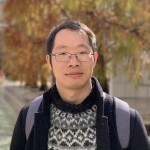 Yuming Jiang, MD, PhD
Yuming Jiang, MD, PhD
Wake Forest University School of Medicine
Winston Salem, NC, USA
My work focuses on the development and application of novel machine learning and deep learning approaches for radiology/pathology image analysis and precision oncology. This can lead to the discovery of image-based biomarkers for clinical applications including treatment response and prognosis prediction, cancer detection and diagnosis, which have the potential to transform cancer care. Further, we integrate images with matched genomics/molecular data to gain more insight into cancer biology.
 Jitendra Jonnagaddala, MD, PhD
Jitendra Jonnagaddala, MD, PhD
UNSW Sydney
Sydney, Australia
I am a Senior Research Fellow with the School of Population Health under the Faculty of Medicine at the University of New South Wales (UNSW), Sydney, Australia. I’m a medically trained doctor with undergraduate degree in engineering and PhD in medicine. My research interests are in the secondary usage of routinely collected electronic health records (EHRs) using artificial intelligence. My current focus is on integration of multimodal data using large language models to individualise treatments in oncology and primary care.
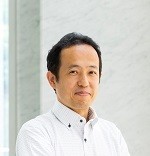 Ryohei Katayama, PhD
Ryohei Katayama, PhD
Chief, Division of Experimental Chemotherapy
Japanese Foundation for Cancer Research
Tokyo, Japan
Dr. Katayama's main research focus is to decipher the mechanism of drug resistance in lung cancer, especially fusion oncogenes driven lung cancer such as ALK or ROS1. He has ample experience in translational research conducted using clinical specimens collaborating with clinicians and scientists in the institute that he belongs to, Japanese Foundation for Cancer Research, in Tokyo. As he graduated PhD in pharmaceutical science from pharmaceutical department, he aims to identify therapeutic strategies to overcome drug resistance. Recently, he has also conducted research evaluating the resistance mechanisms to immune checkpoint inhibitors in multiple cancer types. His lab also focuses on understanding the mechanisms of cancer metastasis, and identification of molecular targets in rare cancers such as osteosarcoma or colorectal cancer in younger generation.
 Fiona Kolbinger, MD
Fiona Kolbinger, MD
Weldon School of Biomedical Engineering,
Purdue University
West Lafayette, IN, USA
Fiona Kolbinger is a Research Assistant Professor at Purdue University's Weldon School of Biomedical Engineering. A physician by training, she completed her doctorate at the German Cancer Research Center in Heidelberg, Germany in 2019. Since then, she has conducted translational research at the intersection of data science and clinical medicine. Her research aims to develop computational tools for personalized treatment in surgery and interventional medicine and to evaluate the clinical value of these tools in early-phase clinical trials.
 Mattia Lauriola, PhD
Mattia Lauriola, PhD
Department of Medical and Surgical Sciences (DIMEC) Histology, Embryology and Applied Biology Unit, University of Bologna
Preclinical & Translational Research in Oncology (PRO) IRCCS Sant’Orsola
Bologna, Italy
Mattia Lauriola's research primarily focuses on membrane receptor tyrosine kinases (RTKs), with a particular interest in the ERBB family, adaptive resistance mechanisms, and cellular plasticity—together with nuclear and cytoskeletal changes—in response to RTK inhibitors. She is also investigating how the inflammatory microenvironment contributes to dampening therapeutic efficacy. Additionally, she is intrigued by the role of systemic circadian regulation—particularly the cortisol/circadian axis—in modulating the EGFR pathway and its potential contribution to night time metastatic dissemination.
 Jessica Lin, MD
Jessica Lin, MD
Associate Professor of Medicine
Massachusetts General Hospital
Boston, MA, USA
Dr. Lin’s major clinical and translational research interests include studying driver oncogene alterations in non-small cell lung cancer and development of resistance to therapies. She leads clinical trials of novel targeted therapy and immunotherapy agents in lung cancer.
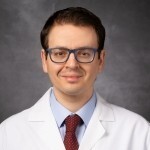 J. Bryan, MD
J. Bryan, MD
MD Anderson Cancer Center
Houston, TX, USA
Dr. Bryan is an assistant professor at MD Anderson Cancer Center and a director in the Molecular Diagnostics Laboratory, where he practices molecular pathology and innovates precision diagnostics for patients with cancer. His research focuses on harnessing cutting-edge genomic technologies to advance clinical care, including through biomarker-driven clinical trials, liquid biopsies, targeted IO/therapies, personalized neoantigen vaccines, and spatial sequencing.
 Rongze (Olivia) Lu, PhD
Rongze (Olivia) Lu, PhD
University of California, San Francisco
San Francisco, USA
Dr. Lu’s research focuses on elucidating the molecular mechanisms of immune suppression and evasion within the tumor microenvironment, with the overarching goal of developing novel cancer immunotherapeutic strategies. Her team was the first to identify protein phosphatase 2A (PP2A) as a target for immunotherapy, demonstrating that PP2A inhibition synergizes with immune checkpoint blockade. PP2A plays a central role in modulating immune suppression across cancer cells, macrophages, and T cells in multiple tumor models. These foundational discoveries have led to the initiation of a Phase I/II clinical trial of a PP2A inhibitor in recurrent glioblastoma (NCT03027388).
 Antonio Marra, MD, MSc
Antonio Marra, MD, MSc
European Institute of Oncology IRCCS
Milan, Italy
Dr Marra is medical oncologist devoted to breast cancer and early drug development and clinician scientist focused on the application of genomics and artificial intelligence for biomarker discovery and drug development in solid tumors
 Julie J. Miller, MD, PhD
Julie J. Miller, MD, PhD
Assistant Professor, Pappas Center for Neuro-Oncology, Department of Neurology
Massachusetts General Hospital
MA, USA
Dr. Julie Miller is an Assistant Professor at Harvard Medical School and a Neuro-Oncologist within the Pappas Center for Neuro-Oncology in the Department of Neurology at Massachusetts General Hospital. Her research focuses on IDH-mutant gliomas, a class of brain tumors that are driven by mutations that regulate metabolism. She utilizes a combination of genetic, pharmacologic and metabolomic approaches in patient-derived glioma models to elucidate the metabolic and cellular pathways that are disrupted by mutant IDH, with the goal of developing novel treatment strategies.
 Raquel Perez-Lopez, MD, PhD
Raquel Perez-Lopez, MD, PhD
Vall d'Hebron Institute of Oncology
Barcelona, Spain
Dr. Raquel Perez-Lopez is an academic radiologist. Her expertise lies in precision imaging for personalized medicine, magnetic resonance imaging (MRI), and the application of artificial intelligence for image processing in cancer research and clinical practice.
 Roxana Pintican, MD, PhD
Roxana Pintican, MD, PhD
"Iuliu Hatieganu" University of Medicine and Pharmacy, Department of Radiology; Prof. Dr. Ion Chirircuta Oncology Institute
Cluj-Napoca, Romania
Dr. Roxana-Maria Pintican is a breast radiologist with a strong interest in advancing breast cancer diagnostics through innovative imaging techniques and artificial intelligence. Her work explores advanced imaging techniques like radiogenomics or relaxometry for breast tumor detection and characterization. Additionally, she has contributed to studies using artificial intelligence in medical imaging, enhancing diagnostic accuracy in oncology.
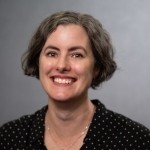 Amy McCart Reed, PhD
Amy McCart Reed, PhD
The University of Queensland
Brisbane, Australia
A/Prof Amy McCart Reed is a senior researcher at The University of Queensland's Centre for Clinical Research, where she leads the Molecular Oncology Group. A/Prof McCart Reed's research program covers 3 major themes: i, breast cancer progression; ii, breast cancer special types (e.g. lobular breast cancer, metaplastic breast cancer); and iii, clinical implementation of genomics technologies.
 Stephanie Saw, MD, PhD
Stephanie Saw, MD, PhD
National Cancer Centre Singapore
Singapore
Stephanie Saw is a medical oncologist subspecialising in thoracic oncology. Her research focuses on improving risk stratification of EGFR-mutated NSCLC, for which she has obtained her PhD in Duke-NUS University. She is also interested in oncogene-driven lung cancer in non-smokers and personalising treatment strategies through biomarker development.
 Jacob Scott, MD, PhD
Jacob Scott, MD, PhD
Cleveland Clinic and CWRU SOM
Cleveland, OH, USA
Jacob’s educational background in physics, medicine, mathematics, and engineering provides him with a unique perspective on cancer and systems biology, enabling him to communicate and collaborate effectively with professionals across many disciplines. He has worked extensively on mathematical modeling of cancer evolution and treatment using a variety of models, including evolutionary game theory, cellular automata, differential equations, and Markov chains. His DPhil thesis focused on the role of heterogeneity—both genetic and microenvironmental—on cancer evolution and radiation response. His laboratory centers on cancer evolution and therapy resistance. Since founding Theory Division, the lab has broadened its scope to include a significant experimental component, conducting experimental evolution in cancer cell lines as well as bacteria. The integration of mathematics, experimental evolution, and clinical focus distinguishes his laboratory as one of the most interdisciplinary in the field of translational cancer evolution and evolutionary medicine.
 Peter Simpson, PhD
Peter Simpson, PhD
The University of Queensland
Brisbane, Australia
Associate Professor Peter Simpson is a scientist at the University of Queensland (Australia). His research focuses on the application of molecular pathology and genomic technologies in the context of breast and lung cancer. In breast cancer, his group studies clinical specimens to understand the evolution of disease and identify biomarkers of recurrence and prognosis. A particular are of interest is the study of invasive lobular carcinoma, and he is a Scientific Advisor for the Lobular Breast Cancer Alliance. In lung cancer, his work seeks to improve the molecular testing capabilities of challenging diagnostic specimens obtained from small biopsies, needle aspirates and blood (cfDNA).
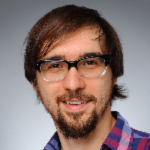 Martin Sos, MD
Martin Sos, MD
Chair of Translational Oncology
German Cancer Research Center (DKFZ), The German Consortium for Translational Cancer Research (DKTK), Munich Partner Site, Ludwig-Maximilian University Munich
Munich, Germany
Dr. Sos is a Professor at the University Hospital Cologne in Germany where he heads the group of Molecular Pathology. His career encompasses medical training, cancer genomics research and translational oncology. His research interests include the dissection molecular processes that drive tumorigenesis and the study of inflammatory programs in the tumor microenvironment. His lab is focused on the therapeutic exploitation of these molecular processes and the translation of these principles into clinical practice.
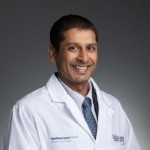 Raghav Sundar, MD, PhD
Raghav Sundar, MD, PhD
Associate Professor of Medicine
Smilow Cancer Hospital and Yale Cancer Center
New Haven
Raghav Sundar cares for patients with gastrointestinal malignancies at the Center for Gastrointestinal Cancers at Smilow Cancer Hospital and Yale Cancer Center in New Haven. His research focuses on identifying biomarkers and therapeutic targets of gastroesophageal cancers and tumors that metastasize to the peritoneum, utilizing multiomic profiling of the tumor microenvironment.
 Aik Choon Tan, PhD
Aik Choon Tan, PhD
Professor, Department of Oncological Sciences and Biomedical Informatics
Huntsman Cancer Institute, University of Utah
Salt Lake City, UT, USA
Dr. Tan is the inaugural Senior Director of Data Science at the Huntsman Cancer Institute, University of Utah. He holds the Jon M. and Karen Huntsman Endowed Chair in Cancer Data Science, Tenured Professor of Oncological Sciences and Biomedical Informatics. His research interests are translational bioinformatics and cancer systems biology, primarily by developing computational and machine learning methods for the analysis and integration of high-throughput cancer multi-omics data in understanding and overcoming treatment resistance mechanisms in cancer. His lab acts as "connector" to provide seamless integration of computational and statistical methods in experimental and clinical cancer research.
 Eneda Toska, PhD
Eneda Toska, PhD
Johns Hopkins University School of Medicine
Baltimore, Maryland
The Toska Lab’s research focus is centered on elucidating the role that transcriptional and epigenetic regulators play in normal and cancer development, and therapeutic response. They are passionate about asking clinically relevant questions and translating basic laboratory findings into therapeutic applications to benefit cancer patients while at the same time providing new insights into the fundamental mechanisms of how epigenetic regulators regulate transcription and dictate cell identity.
 Aria Vaishnavi, PhD
Aria Vaishnavi, PhD
Assistant Professor, Department of Cancer Biology
UT MD Anderson Cancer Center
Texas, USA
The Vaishnavi lab studies mechanisms of tumor initiation, maintenance, progression, and therapeutic response. To do this, we utilize genetically engineered mouse models, patient-derived xenograft mouse models, and cultured cancer cells in combination with various genetic and pharmacological manipulations. We focus on understanding both the common and distinct signaling mechanisms used by oncogenes and cross-talk with support signaling pathways to understand their contributions to cancer.
 Rami Vanguri, PhD
Rami Vanguri, PhD
Assistant Professor, Department of Medicine
NYU Grossman School of Medicine
New York, NY, USA
Dr. Vanguri is interested in using data science techniques to better understand human disease. His work includes developing innovative analysis techniques for histological and radiological data to develop predictive biomarkers. Ultimately, he aims to develop integrative multimodal biomarkers that can be translated into clinic.
 Sabarinath Venniyil Radhakrishnan, MD
Sabarinath Venniyil Radhakrishnan, MD
Assistant Professor, Department of Medicine
Medical College of Wisconsin
Milwaukee, WI, USA
Dr. Sabarinath Radhakrishnan is a physician-scientist in the Division of Hematology & Oncology at the Medical College of Wisconsin. His lab focuses on ways to engineer chimeric antigen receptor (CAR) T cells to improve toxicity and overcome tumor resistance.
 Xuefeng Wang, PhD
Xuefeng Wang, PhD
H. Lee Moffitt Cancer Center & Research Institute
Tampa, FL, USA
Dr. Xuefeng Wang is Department Chair of Biostatistics and Bioinformatics at Moffitt Cancer Center and leads the Intelligent and Translational Biomarker Discovery lab. His research focuses on developing statistical and AI-driven methods for cancer genomics, immunotherapy, and population omics. His lab integrates clinical trial data, real-world evidence, and the newest omics technologies—including bulk tissue, single-cell, spatial, and liquid biopsies— to uncover predictive biomarkers and improve precision oncology. Dr. Wang also has a strong interest in building AI frameworks that bridge human and preclinical models to facilitate transfer and contrastive learning in translational cancer research.
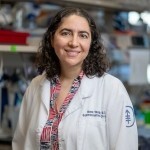 Rona Yaeger, MD
Rona Yaeger, MD
Member, Department of Medicine
Memorial Sloan Kettering Cancer Center
New York, NY, USA
Dr. Yaeger is a medical oncologist and Member at Memorial Sloan Kettering Cancer Center (MSK). She cares for patients through the Gastrointestinal Oncology and Early Drug Development Services, leads an independent translational research laboratory, and serves as Associate Director of the Colorectal Cancer Research Center at MSK. Dr. Yaeger’s clinical and laboratory research focuses on identifying and understanding molecular subsets of colorectal cancer and anal squamous cell carcinoma, with the goal of developing targeted therapies. She has particular expertise in the use of targeted treatments for these cancers and has led clinical trials investigating BRAF and KRAS G12C inhibitors in colorectal cancer.
Founding Editor
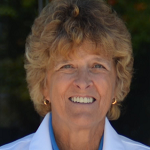 Ann M. Bode, PhD
Ann M. Bode, PhD
Interim Executive Director
The Hormel Institute, University of Minnesota
MN, USA
Dr. Ann M. Bode is the co-leader of Molecular and Cellular Biology research sections at The Hormel Institute, University of Minnesota. Previously, Dr. Bode ran a research program specializing in biomarker discovery and research focusing on the role of reactive oxygen species and antioxidants in chronic diseases, including cancer and diabetes. Her current research is focused on molecular and cellular mechanisms of cancer development and the identification of biomarkers that could determine whether a certain drug will be effective for preventing or treating cancer. She is a member of the Masonic Cancer Center, American Society of Clinical Oncology, American Association for the Advancement of Science and American Association for Cancer Research.
Advisory Editor
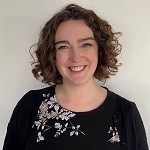 Kathryn McGinnis, PhD
Kathryn McGinnis, PhD
Kathryn is an Associate Editor at Nature Communications, within the cancer team handling manuscripts regarding cancer omics and therapeutic biomarkers. She previously studied the role of steroids in brain cancer using bulk and single cell RNA-sequencing during her PhD and subsequent post-doc at the University of Leeds. She previously received her BSc in Immunology at the University of Glasgow, and MSc working in industry within stem cell banking.
Editorial Board Members
Carlos L. Arteaga, MD, Vanderbilt-Ingram Cancer Center, Vanderbilt University, Nashville, Tennessee, USA
Aditya Bardia, MD, Harvard Medical School, Boston, Massachusetts, USA
Adam J Bass, MD, Columbia University, New York, NY, USA
Ilana Chefetz Menaker, PhD, The Hormel Institute, University of Minnesota, Austin, Minnesota, USA
Christopher Chen, MD, Stanford University School of Medicine, Palo Alto, CA, USA
Eric Collisson, MD, University of California San Francisco, San Francisco, CA, USA
Dan Dixon, PhD, University of Kansas Cancer Center, Kansas City, Kansas, USA
Federico Pio Fabrizio, PhD, Kore University of Enna, Enna, Italy
Angela J George, MB ChB MDRes FRACP, The Institute of Cancer Research, London, UK
Ernie Hawk, MD, The University of Texas MD Anderson Cancer Center, Houston, Texas, USA
John V Heymach, MD, PhD, Anderson Cancer Center, Houston, Texas, USA
Luke H. Hoeppner, PhD, The Hormel Institute, University of Minnesota, Austin, Minnesota, USA
Sunita Keshari, PhD, Postdoctoral Fellow, Texas,TX, USA
Albert E Kim, MD, Massachusetts General Hospital Cancer Center, Massachusetts, USA
Scott M. Lippman, MD, UC San Diego School of Medicine, La Jolla, California, USA
Sherene Loi, MD, PhD, Peter MacCallum Cancer Centre & University of Melbourne, Melbourne, Australia
Mark M. Moasser, MD, University of California, San Francisco, San Francisco, CA, USA
Rebecca J. Morris, PhD, The Hormel Institute, University of Minnesota, Austin, Minnesota, USA
Sathiya Pandi Narayanan, PhD, SIDRA Medicine, Qatar
Rachael C Natrajan, PhD, The Institute of Cancer Research, London, UK
Emanuel F. Petricoin, PhD, George Mason University, Manassas, Virginia USA
Sanjay K. Srivastava, PhD, Texas Tech University Health Sciences Center, Amarillo, Texas, USA
Young-Joon Surh, PhD, Molecular Medicine and Biopharmaceutical Sciences, Seoul National University, Seoul, Korea
Eva Szabo, MD, National Cancer Institute, Bethesda, Maryland, USA
Hongyang Wang, MD, PhD, Chinese Academy of Sciences, Shanghai, China
Douglas Yee, MD, Masonic Cancer Center, University of Minnesota, Minneapolis, Minnesota, USA
Alexandra S Zimmer, MD, OHSU, Knight Cancer Institute, OR, USA
Interested in joining the journal team?
If you are interested in joining the journal as an Editorial Board Member or Associate Editor, please complete this form. Associate Editors are part of the editorial team that handle manuscripts, while Editorial Board Members are regular reviewers and are consulted for ad hoc advice. We will contact you if your expertise meets the needs of the journal.
Nature Portfolio journals are committed to promoting practices that support diversity, equity and inclusion in science communication and publishing, and we strongly encourage gender, race, ethnic, geographic, career stage and other diversity in our journal teams. Our in-house staff will use your information only for the purposes of identifying new editorial team or board members. Please contact the journal by email if you would like to remove your information from these records.
Please note that we are not able to respond to all applicants.
